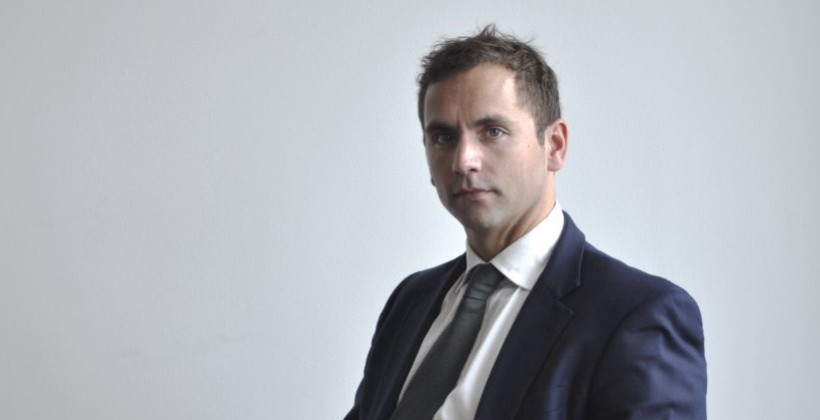The role of interest rates in startup funding and business valuations has been much discussed. But with talk of interest rates returning to pre-Covid levels, should we expect a rebound in tech valuations and more active VC and PE investment in tech startups?
In his monthly article for VideoWeek, Ian Whittaker, founder and managing director of Liberty Sky Advisors, explains why the reality of what to expect is a little more complicated.
Much has been written about the continued decline in tech funding. CB Insights – and their excellent reports – reported that VC funding for start-ups has fallen 13.6 percent in Q1 23 to $58.6bn -compared with $151bn in Q1 22 – and now below pre-Covid levels.
The reason for that fall-off is not difficult to discern. The rapid rise in – particularly US – interest rates in 2022 tilted the investment models of many Venture Capital and Private Equity-backed firms from pursuing growth at all costs to cash preservation. It is a salutary lesson that, much as the media and tech industry may like to think it is the master of its own destiny, the biggest drivers of change can lie in the wider world or, as I like to say, you need to see the bigger picture.
With that in mind, it’s worth noting that perhaps the biggest bullish signal for media and tech growth companies that came from last week had nothing to do with the sectors per se, but the report that the International Monetary Fund believes interest rates will return to pre-Covid levels. If the rise in interest rates in 2022 was the single biggest factor why valuations declined, companies switched strategies and funding plunged, then if the IMF’s predictions turn out to be true, surely the tech sector should expect to see a rebound?
Indeed, some of that has already happened, particularly for the major players. Meta is up 80 percent YTD, although some of the gains of the likes of Alphabet (Google) and Amazon are more modest, up more like 20 percent+. Nevertheless, All these gains are significantly ahead of overall market gains, So does this mean we are back to the good old days? It is not as simple as that.
It is worth remembering that, while many tech companies are significantly up YTD, they are also still significantly below peaks. One of the basic, but often forgotten, points about falls and rises is that the percentage numbers do not cancel each out. So, if I theoretically have a share priced at $100, if it falls 70 percent and then rises 70 percent, that does not take it back to 100 but to 51 – i.e. 49 percent below where it was: (100 x (1-70%) = $30; $30 * (1+70%) = $51, for those interested in the maths).
This is the position the tech companies find themselves in at the moment. While share prices have rallied strongly, they are still significantly below where they were. As I type, Meta’s share price is $215, but its peak was over $350.
No prolonged winter, no glorious summer
A more significant issue though is what the IMF paper actually said. When it talked about a return to pre-Covid levels, it was referring to real interest rates, i.e. adjusted for inflation. Pre-Covid, real interest rates were in the range of zero to c. -2 percent for the major economies. To put in context, the UK currently has very high negative real interest rates of nearly 6 percent (nominal interest rate = 4.25 percent, inflation rate = 10.1 percent so 4.25% – 10.1% = -5.85%).
There is no way the Bank of England is going to head towards a neutral real interest rate at the current inflation rate – it would wreck the economy, particularly as the UK is weighted towards short-term mortgages where such an interest rate would force many households to likely default. However, what should be obvious is the key determinant of what happens with the real interest rate depends on what happens with the inflation rate. If inflation settles at, say , 2 percent, then interest rates are likely to come down to a c. 0 percent to 2 percent range. But if we are in for structurally higher inflation, let’s say 5 percent, then the nominal interest rate would be more like 3 percent – 5 percent.
This might seem like arcane financial messaging but, as I pointed out in the beginning, sometimes it is what is happening in the bigger picture that proves to have the most influence. And this is a massive question for funding for many start-ups – and for their valuations.
If we are back to the days of 0-2 percent nominal interest rates, then the tech sector valuations are likely to rally strongly; money will return to the sector and there will be a greater focus on growth strategies. I do not think it will go back to the heady days of 2021/early 2022 – too much has happened – but sentiment will definitely improve. Many of you have heard me talk about the Discounted Cash Flow tool as the primary valuation methodology for financial firms, and its primary input is the risk-free interest rate, or effectively government debt rate (mainly US Treasuries). If that number does go back to 1 percent, it is a major boost.
However, my feeling is that inflation may be structurally higher than pre-Covid. There are too many structural factors that are likely to keep inflation elevated above the levels of the pre-2022 world, such as supply chains being reorganised to rebuild in redundancy, higher wage costs, increased regulatory burdens relating to sustainability requirements and so forth. That will mean that nominal interest rates will remain higher than pre-2022 days, and that will impact both funding and valuations.
What does that mean when it comes to new areas? Put simply, both the valuation and funding environments are unlikely to go back to the same as they were. My feeling is that, for the next several years, the environment is likely to be subdued and, while AI and ChatGPT are gaining much attention, eventual investment may be less than expected, especially as governments rush to introduce restrictions. It is not exactly a likely prolonged winter for tech investment, but do not look for a glorious summer either.
As usual, this is not investment advice.





